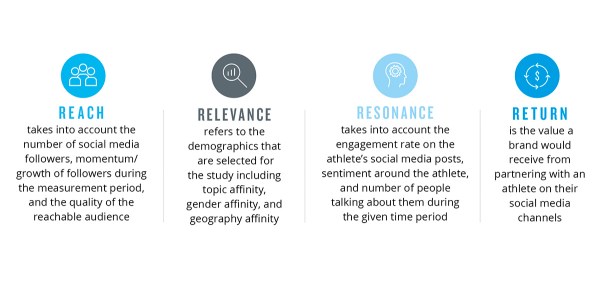In an era of media overload and ad-blocking, brands are increasingly enlisting celebrities to do their messaging legwork for them via social media. And they’re not just asking celebs to be spokespeople. They’re looking for ambassadors that can reach audiences in ways that are authentic to their own personal brands, rather than those that are affiliated with the products and services they’re paid to represent.
In professional sports, the relationships between athletes and brands are becoming seamlessly integrated and more measurable, in many cases moving far beyond the traditional and straightforward product endorsements. Brands see the power of reach that celebrities have, and the celebrities oftentimes earn more through sponsorships than they do playing their sport of choice.
From tennis shoes and sports drinks to cars and credit cards, fans like to buy products and services that their favorite athletes endorse on social media. But brands need to identify the right influencer and get them on board before the athlete is priced out of their budgets.
For this special report, in collaboration with Leaders, a global sports business organization, Nielsen Sports has focused on the commercial endorsement power—and potential—of a younger generation of athletes who compete in a variety of sports around the world. These athletes, all of whom are under the age of 25, are already stars in their chosen sport, and they have broad appeal for brands across the social media landscape beyond their game of choice.
We used our social valuation scorecard for our analysis, which considered more than 30 social and digital data points. The scorecard is anchored by four key pillars: ‘Reach,’ ‘Relevance,’ ‘Resonance,’ and ‘Return.’




